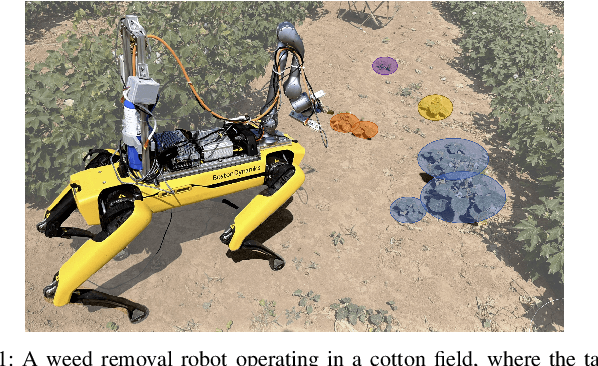Energy Efficient Planning for Repetitive Heterogeneous Tasks in Precision Agriculture
Paper and Code
Apr 04, 2025



Robotic weed removal in precision agriculture introduces a repetitive heterogeneous task planning (RHTP) challenge for a mobile manipulator. RHTP has two unique characteristics: 1) an observe-first-and-manipulate-later (OFML) temporal constraint that forces a unique ordering of two different tasks for each target and 2) energy savings from efficient task collocation to minimize unnecessary movements. RHTP can be framed as a stochastic renewal process. According to the Renewal Reward Theorem, the expected energy usage per task cycle is the long-run average. Traditional task and motion planning focuses on feasibility rather than optimality due to the unknown object and obstacle position prior to execution. However, the known target/obstacle distribution in precision agriculture allows minimizing the expected energy usage. For each instance in this renewal process, we first compute task space partition, a novel data structure that computes all possibilities of task multiplexing and its probabilities with robot reachability. Then we propose a region-based set-coverage problem to formulate the RHTP as a mixed-integer nonlinear programming. We have implemented and solved RHTP using Branch-and-Bound solver. Compared to a baseline in simulations based on real field data, the results suggest a significant improvement in path length, number of robot stops, overall energy usage, and number of replans.
 Add to Chrome
Add to Chrome Add to Firefox
Add to Firefox Add to Edge
Add to Edge